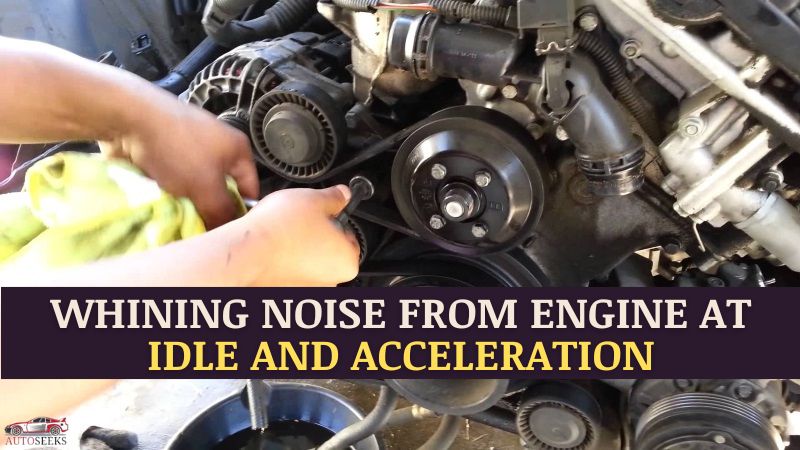Low levels of steering fluid, a leak in the steering pump, the alternator, wheel bearings, worn or loose belts, the transmission, brakes, and the exhaust are all potential causes of whining noise from engine at idle and acceleration.
Over time, the engine’s proper operation will be compromised as a result of wear and tear on various components caused by regular driving. When you’re accelerating your car and hear whining, keep in mind that this could be caused by several things that even a mechanic might have trouble figuring out.
Try to figure out where the sound is coming from and see if you can find a mechanic who focuses on that part of the car to save money.
Don’t be afraid to call multiple mechanics and provide as detailed a description of the noises and conditions as you can. Find out from them what might be the issue. Ask if they have dealt with this problem in the past and how much it would cost to fix. Before signing anything, make sure you feel at ease.
Regardless of a mechanic’s level of expertise or experience, it can be challenging to identify the precise cause or component that is to blame. Therefore, let’s investigate some additional explanations for the whining sound you hear in your car.
Table of Contents
1) Transmission issue
The transmission of a vehicle plays a crucial role in distributing engine power to the drive axles of a car, truck, or SUV. Unfortunately, as they get older, transmissions are more prone to internal failure.
A failure of this kind can occasionally produce an audible whining sound. Commotions of this kind can frequently demonstrate hard to find, particularly while rebounding from a vehicle’s transmission burrow.
The transmission of your car usually makes a whining sound, which usually means there is a problem with the fluid. When the fluid level in a transmission drops below capacity or when a transmission fluid pump begins to fail, a noise of this kind is quite common.
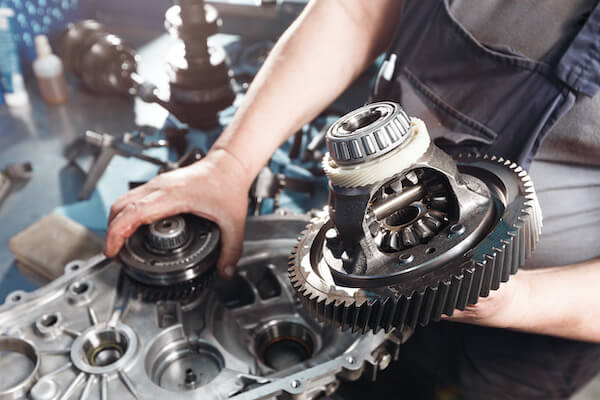
Furthermore, a weak force converter can likewise introduce a whimpering commotion. At high speeds, internal bearing wear frequently produces a noise that can be mistaken for a whine.
The onset of a whining noise from a vehicle’s transmission is typically regarded as extremely serious. Transmission removal will be required for the replacement of a defective torque converter.
2) Failing alternator bearings
The alternator in your automobile produces electricity to power accessories and maintain battery charge. The alternator has a few headings which permit the alternator’s rotor to uninhibitedly turn. If these bearings begin to fail, you will hear a loud whining sound that will get louder as you accelerate or put more weight on the vehicle.
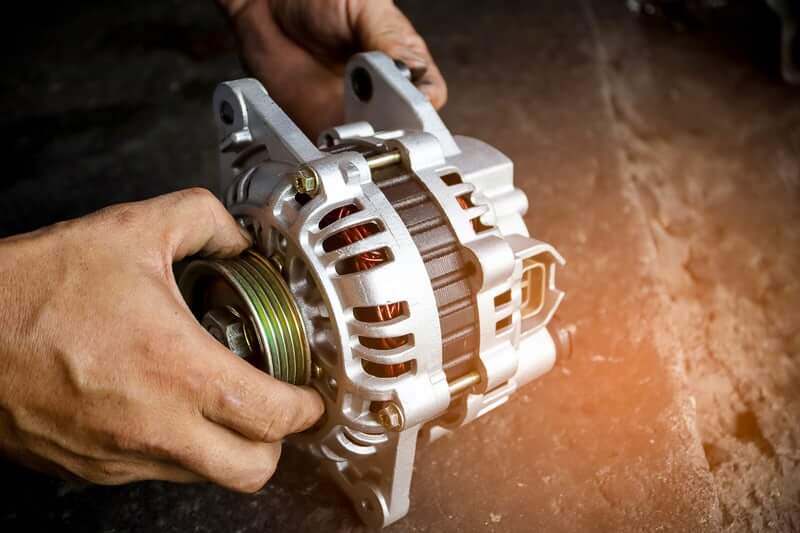
The alternator is most likely to blame if the whining noises end up causing electrical issues like your car not starting.
3) Damaged Serpentine Belt
A serpentine belt can dry out and crack over time. A belt can’t grip the pulleys of the various accessories it drives as effectively as it should because of this. Belt slippage is inevitable as a result of this, and it only gets worse over time.
The friction caused by a serpentine belt sliding along the outer diameter of various pulleys can result in a significant amount of noise. The best way to describe these sounds is probably as a whining or squealing sound that tends to get louder as you accelerate. An already worn serpentine belt may suffer further damage as a result of this additional friction, eventually leading to failure.
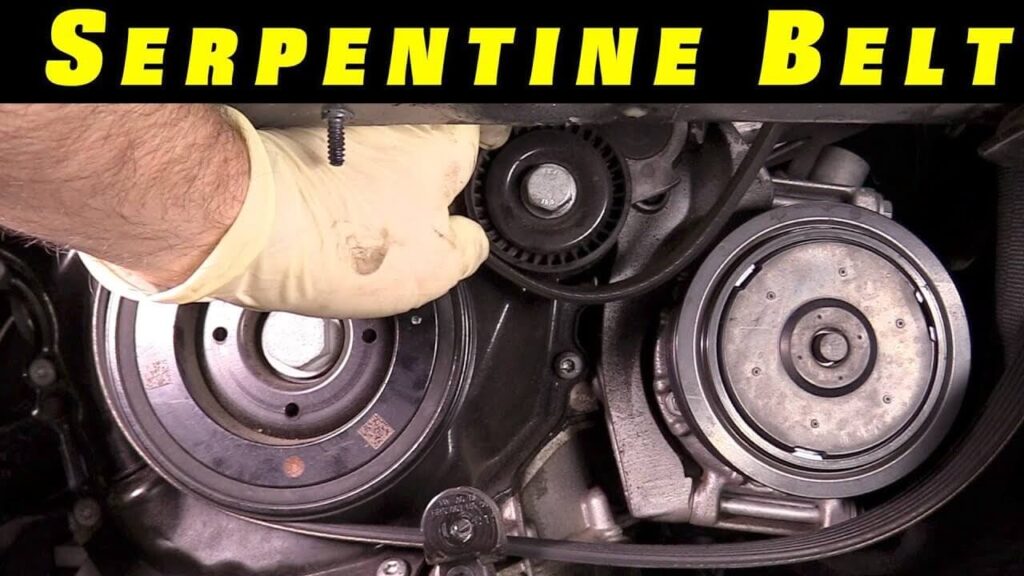
The whining or squealing of a serpentine belt is frequently more of an annoyance than anything else, and if it is not addressed immediately, there is little risk of causing additional issues.
Be that as it may, a seriously worn or harmed serpentine belt can snap, or be tossed from the pulleys on which it rides. All belt-driven accessories will lose their ability to function when this happens, leaving you stranded
4) Low Engine Oil
There is always a chance that your issues are caused by the low engine oil. To keep the motor lubricated and protected, the engine needs the right amount of oil. The engine will eventually stop working and stop functioning without oil.
You might hear a variety of sounds, especially whining, as the engine oil level drops. This issue can be generally pervasive as you endeavour to advance quickly since the engine is put under tension during this activity.
5) Vacuum leak
If there is a vacuum leak in the intake manifold, it can make a whining sound when you accelerate, especially if the turbocharger in your car’s engine blows the air out of the leak.
A broken hose around the intake manifold is the most common cause of a vacuum leak, but if your vehicle has a turbocharger, it could also be a leak around the boost pipes.
6) Steering System Failure
The steering system is made up of many parts that could break and make a whining sound. Some of these components might whine continuously, while others might be more noticeable when the vehicle is moving quickly. For instance, a faulty power steering pump might be to blame. Additionally, there may be a repairable power steering fluid leak.
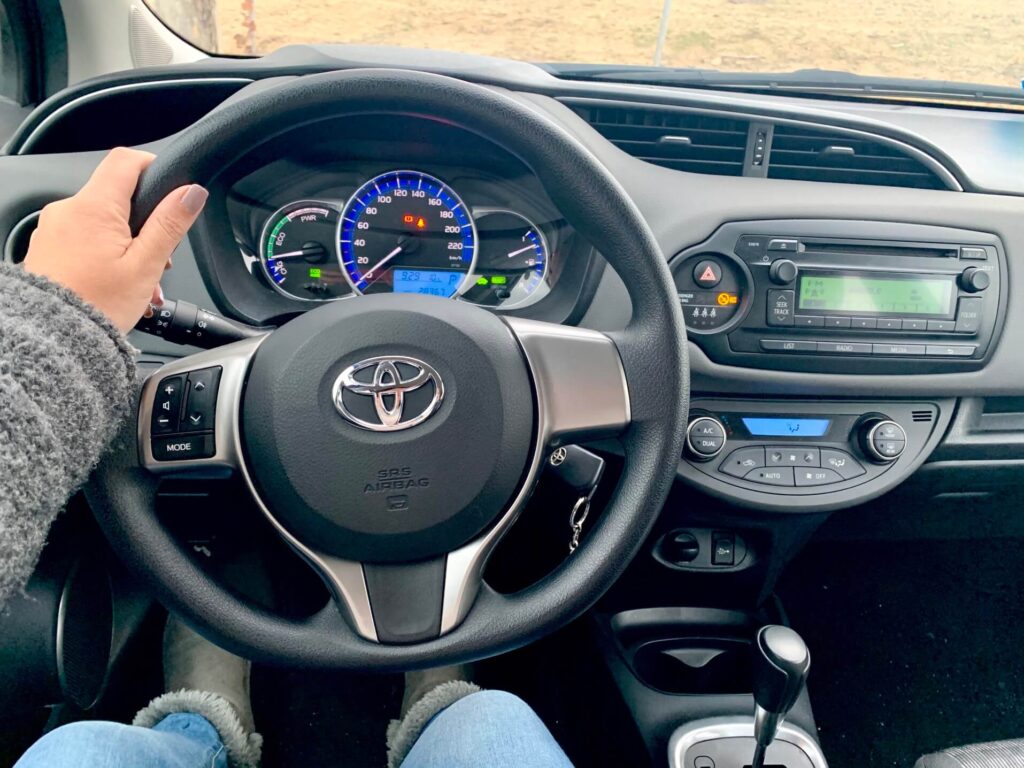
When turning the steering wheel from side to side, the power steering pump will whimper louder, usually because there isn’t enough power steering fluid. The best tool for determining the cause of the other bearing noises is a mechanic’s stethoscope. A vehicle can break down if any of the components making a whining sound are not fixed.
Also, other motor parts can be harmed when leaves behind orientation at last fall apart
Conclusion
You may not be able to easily diagnose the noises in your car, but with some time and assistance, you can figure out what’s going on and what needs to be done to fix it. Keep in mind to take notes on the various noises and try to figure out exactly where they are coming from. A mechanic has the expertise and a plethora of diagnostic tools to assist in engine inspection.
Make sure to address the issue as soon as possible to avoid costly repairs down the road. Sometimes it can be fixed on your own or with a friend.
Whether you perform routine maintenance on your own or hire a mechanic, it makes sense to address any issues and resolve any problems. To avoid problems down the road, you’ll be ensuring your car’s health and safety.
FAQ Regarding The Whining Noise from Engine at idle and acceleration
Q.1) Can a dirty air filter cause a whining noise from the engine?
A dirty air filter is unlikely to cause a whining noise from the engine. Still, it can affect the engine’s performance and cause reduced airflow, leading to poor acceleration, decreased fuel efficiency, and even stalling.
Q.2) How much to fix a whining noise from the engine?
The cost of fixing a whining noise from the engine can vary depending on the root cause of the issue. For example, replacing a worn alternator belt or a malfunctioning power steering pump can cost between $100 and $500, while fixing a faulty engine bearing or a failing water pump could cost $1000 or more.
Q.3) Can a whining noise from the engine affect my car’s performance?
Yes, a whining noise from the engine can indicate a problem that could affect your car’s performance, including reduced acceleration, poor fuel efficiency, and even stalling.
- Keeping Your Gear Organized and Mobile - May 6, 2024
- Understanding Strut Tower Braces for Your Car - May 3, 2024
- Unlocking The Secrets of Your Car’s Identity with a VIN Decoder - April 25, 2024

